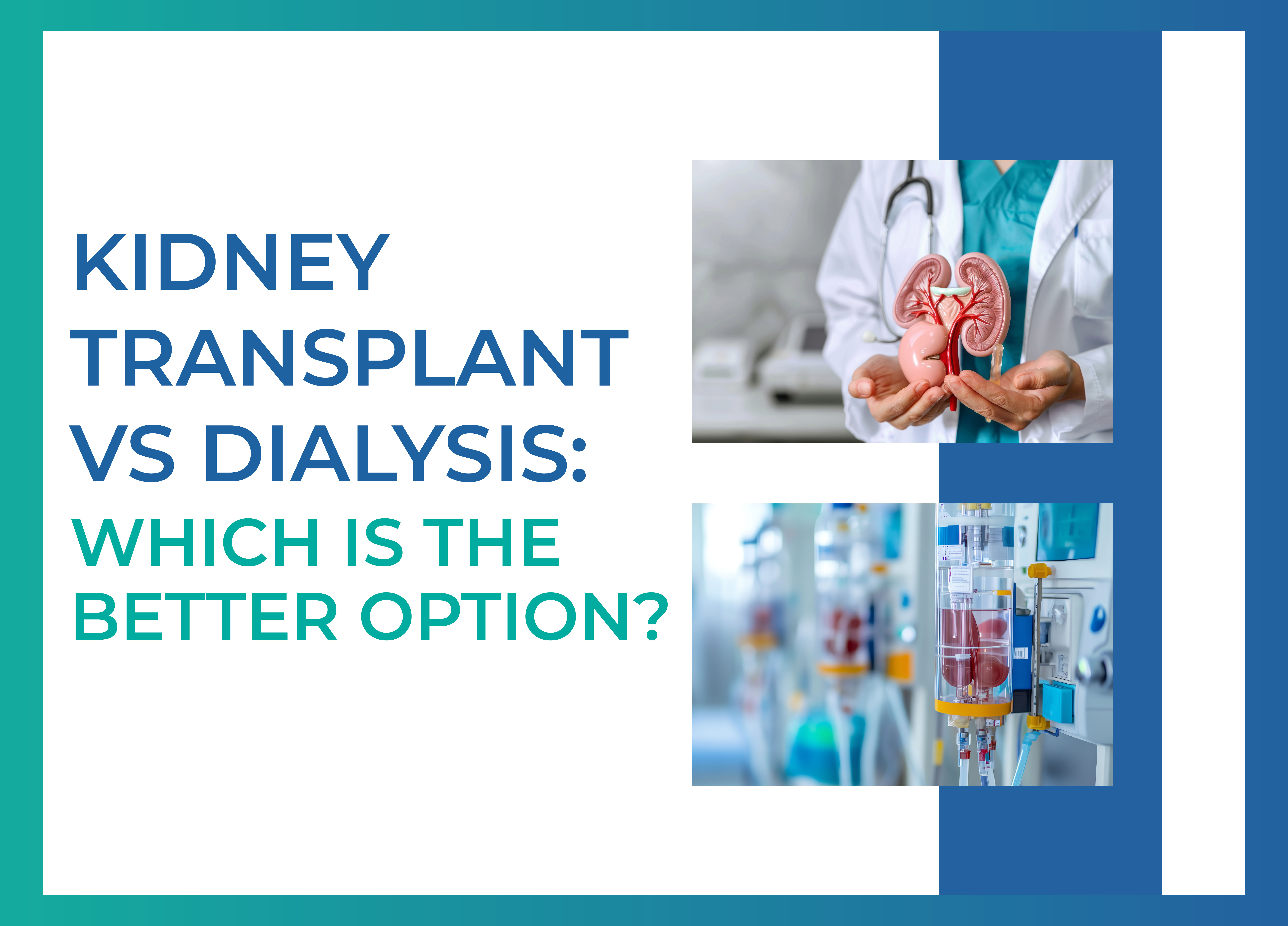
Kidney Transplant vs Dialysis: Which is the Better Option?
When someone’s kidneys stop working, they are left with two main treatment options — dialysis or a kidney transplant. Both methods help keep the body functioning after kidney failure, but they work very differently. Choosing the right option depends on many factors, including your overall health, lifestyle, financial situation, and personal preferences. In this article, we will explain both treatments in simple language to help you understand which one might be better for you.
To make this discussion even more helpful, we spoke to Dr. Vijay Patel, a leading kidney transplant specialist in Mumbai and widely known as one of the best nephrologists in South Mumbai.
Understanding Kidney Failure:
Before comparing dialysis and transplant, let’s quickly understand why kidney failure happens. Our kidneys filter waste, toxins, and extra fluid from the blood. When the kidneys fail — a condition known as end-stage renal disease (ESRD) — these waste products build up in the body, leading to dangerous complications. In such cases, the patient’s only choices are dialysis or kidney transplant.
What is Dialysis?
Dialysis is a process that artificially removes waste, salt, and extra fluid from your blood when your kidneys can no longer do the job. There are two main types of dialysis:
- Hemodialysis:This is the most common type. In hemodialysis, your blood is filtered through a machine outside your body. The clean blood is then returned to you. Most people need hemodialysis 3 to 4 times a week, and each session takes about 4 hours.
- Peritoneal Dialysis:This method uses the lining of your abdomen (peritoneum) to filter waste from your blood inside your body. Special fluid is placed into your abdomen, which collects the waste. This fluid is then drained out. Peritoneal dialysis can often be done at home.
What is a Kidney Transplant?
A kidney transplant is a surgical procedure where a healthy kidney from a donor is placed into the patient’s body. This donor kidney takes over the work of filtering the blood. The donor can be a living person (usually a relative or friend) or someone who has passed away but donated their organs.
Advantages and Disadvantages of Dialysis
Dialysis, on the other hand, is often the first treatment choice for those who are either not medically fit for transplant or do not have a suitable donor available.
Advantages of Dialysis:
- It can start quickly, which is helpful in emergencies.
- Surgery is not required (for most cases).
- Older or medically complex patients can tolerate dialysis better than major surgery.
Disadvantages of Dialysis:
Lifestyle Impact: Dialysis vs Transplant:
One of the biggest differences between dialysis and transplant is how they impact your daily life.
With dialysis, patients must plan their schedule around treatment sessions. Traveling long distances becomes difficult, and many patients feel fatigued even after their sessions.
With a kidney transplant, once you recover from surgery, your life can feel almost normal. You will need regular check-ups and take medications, but you are not tied to a machine or strict time slots.
This improved quality of life is one reason why Dr. Vijay Patel, known as one of the best nephrologists in South Mumbai, often encourages eligible patients to consider transplant if possible.
Financial Considerations:
When it comes to cost, the choice between dialysis and transplant can vary:
- Dialysis involves ongoing costs for each session, medications, and related medical care.
- Transplant has a high one-time cost for surgery and initial care, but the long-term expenses are typically lower than lifelong dialysis.
In Mumbai, Dr. Vijay Patel, a leading kidney transplant specialist in Mumbai, works with patients to understand their financial concerns and find affordable solutions for kidney transplant surgeries.
Medical Risks Involved:
Every medical treatment has risks, and both dialysis and transplant come with potential complications.
Risks with Dialysis
- Infection at the access site.
- Low blood pressure during treatment.
- Cramps, nausea, or dizziness.
- Long-term complications like bone disease or heart problems.
Risks with Transplant:
Who Should Choose Dialysis?
Dialysis may be the better option for:
Risks with Dialysis
Who Should Choose Transplant?
A kidney transplant is usually the preferred option for:
- Younger, healthier patients.
- People who want a more flexible lifestyle
- Those who want to avoid the long-term side effects of dialysis.